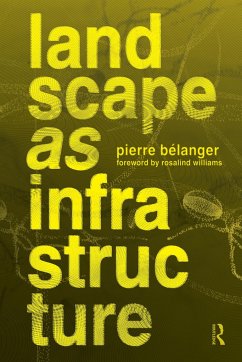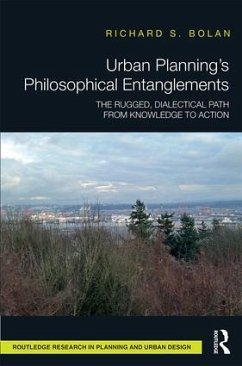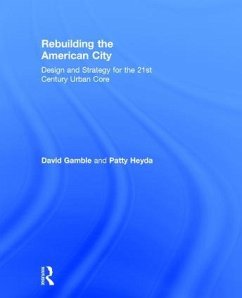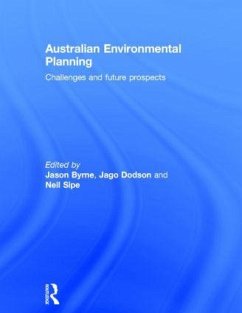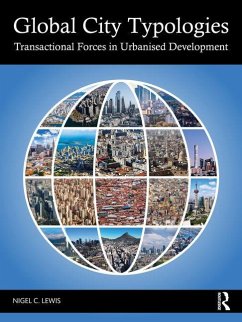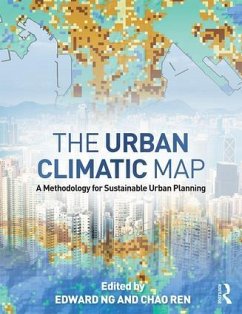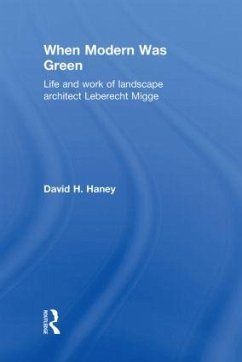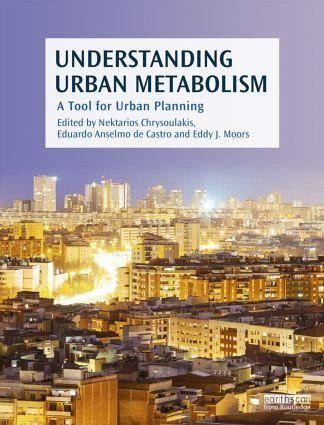
Gebundenes Buch
Understanding Urban Metabolism
A Tool for Urban Planning
Herausgeber: Chrysoulakis, Nektarios; Moors, Eddy J; Castro, Eduardo Anselmo De
Versandkostenfrei!
Versandfertig in über 4 Wochen

PAYBACK Punkte
88 °P sammeln!




Closes the gap between the bio-physical sciences and urban planning and illustrates the advantages of accounting for urban metabolism issues in urban design decisions.
Nektarios Chrysoulakis is a Researcher Director at the Foundation for Research and Technology - Hellas in Herakleion, Greece. He holds a BSc in Physics, a MSc in Environmental Physics and PhD in Remote Sensing from the University of Athens. He has been involved in R&D projects funded from organizations such as the European Union, the European Space Agency and the Ministries of Environment, Development, Culture and Education. He has considerable experience in the area of Earth Observation and GIS. His main research interests include urban research, urban energy balance, natural and technological risk analysis, thermal infrared imagery and surface temperature studies, environmental monitoring and change detection. He is the coordinator of the FP7 projects BRIDGE and GEOURBAN. He has more than 100 publications in peer-review journals and conference proceedings. Eduardo Anselmo de Castro has a degree in Civil Engineering, an MSc in Local Geography, Local and Regional Planning and a PhD in Regional Economics. He is Associate Professor in the University of Aveiro, where he lectures courses of Regional Economics and Planning, and Social and Economic Analysis. Since 1992 he has been a member and regular coordinator of research teams participating in several European and National projects in Innovation and Development Policy, Regional Economics and Regional Policy, Strategic Spatial Planning, Socio-economic Evaluation of Telecommunication Services and Sustainable Development. He is author and co-author of more than 100 papers presented in national and international conferences or published in scientific journals and books. Eddy J. Moors is Head of the research group Climate Change and Adaptive Land and Water Management of Alterra-Wageningen University and Research Centre, the Netherlands. The group focuses on developing innovative solutions to improve the quality of life within sustainable boundaries. Before coming to Alterra, Moors worked for Wageningen University, the Ministry of Defence of the Netherlands and in Africa and the Caribbean for the World Meteorological Organisation. His background is in hydro-meteorology. He has extensive experience in integrating different disciplines to tackle research questions that ask for an inter- and trans-disciplinary approach. He is and has been coordinator of numerous national and international projects ranging from Europe, Africa, India, East-Siberia to USA and Brazil. He is author and co-author of more than 70 peer-reviewed papers and numerous professional publications.
Produktdetails
- Verlag: Taylor & Francis
- Seitenzahl: 224
- Erscheinungstermin: 12. August 2014
- Englisch
- Abmessung: 254mm x 192mm x 20mm
- Gewicht: 650g
- ISBN-13: 9780415835114
- ISBN-10: 0415835119
- Artikelnr.: 37181797
Herstellerkennzeichnung
Libri GmbH
Europaallee 1
36244 Bad Hersfeld
gpsr@libri.de
Für dieses Produkt wurde noch keine Bewertung abgegeben. Wir würden uns sehr freuen, wenn du die erste Bewertung schreibst!
Eine Bewertung schreiben
Eine Bewertung schreiben
Andere Kunden interessierten sich für




